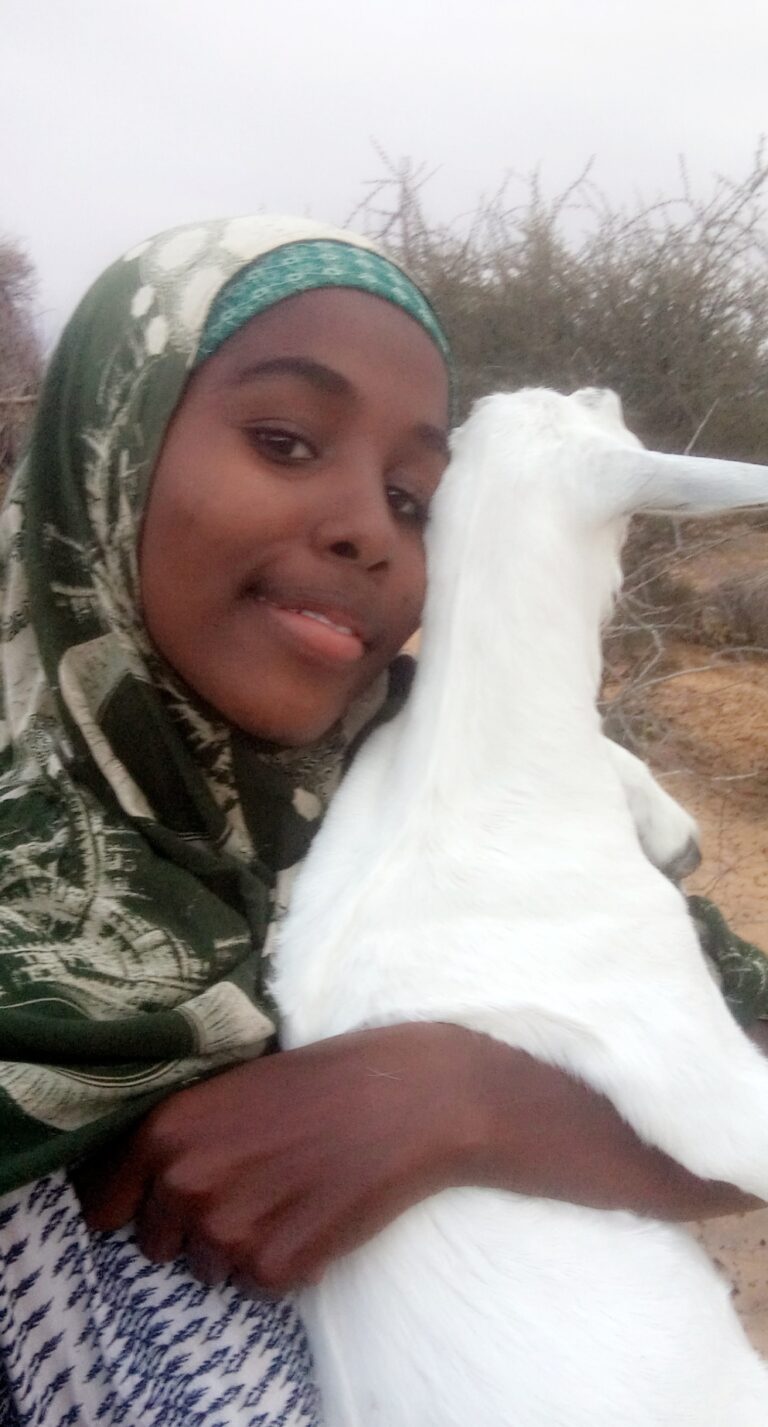It may seem to some people that being born in the countryside or having your family live there is a disgrace, but it is a social norm that reflects lack of civilization and understanding for rural areas. In society, where it is insulting and demeaning to a person based on their place of birth or upbringing in a rural area. By the way, we all know that significant portion of our population has historically come from and lived in rural areas, and the time we say so, it shows a lack of open-mindedness.
For me I’m a girl who from a rural family, I say it loudly. My ancestors, grandparents, and those who came before me, as well as my father and mother, were born and raised in the countryside. They were nomads and pastoralists, adapting to the changing seasons to find grazing lands. They lived a lifestyle similar to that of other rural Somalis, facing both challenges and opportunities. I, along with most of my siblings, was also born in the countryside. I spent my early years there, where I completed my Quranic studies by the age of nine.
I was fortunate to be the only girl in the area who had the opportunity to attend a Quranic school. At Dugsi, I was one girl among thirty and above boys. I wasn’t same as the girl peers lived in the area, who did not have the opportunity to study. Due to their responsibilities in household chores, such as fetching water, cooking, tending to goats, or cultivating crops. These responsibilities often prevented them from accessing education, even though the only available form of education was the Dugsi. I take pride in the fact that I was born, raised, and educated in the countryside. I’m a nomad lady!
There is a belief that individuals born in rural areas are stronger and have a more resilient personality compared to those who grow up in urban settings. While I don’t see a strong justification for this belief, also I can’t deny that a large percentage of those born in the rural are more active than those who grew up in the cities. This may be because they do not experience the same obstacles or face hunger at night. Can we expect someone who may have only eaten once a day to have the same endurance and resistance as someone of the same age who never experiences hunger, fatigue, and always sees the food he would eat for a whole month at his mother’s house. Of course not. One knows that there is limited food for the family, so they must wait and see how much more food they can get, while the other has no such worries.
Now, let’s return to our topic.
The title above is inspired by a recent story I heard while walking down the street. I came across a group of young children on their way to Quranic school who were engaged in a conversation about their breakfast. Most of them mentioned having “Canjeero,” the Somali pancake, while only one child said he had “Rooti” (bread) for breakfast. They continued their journey to Dugsi, wondering aloud since it wasn’t too far away.
As I walked away, their conversation and stories bring me back to my own childhood when I used to walk 7 to 8 miles to attend Dugsi, covering the same distance in the afternoon to return home. These memories took me back to the days when my family lived in the countryside, and I was the little girl who ventured to Dugsi in the morning and returned in the afternoon. The scorching and arduous days where the sun seemed not far from the earth.
In particular, their discussion about breakfast reminded me of my own meals throughout the day. I recalled that lunch was not in my dictionary, and I only had breakfast in the morning and dinner in the evening. My sustenance throughout the day primarily consisted of a bottle of water that I carried, although it was sometimes taken from me by force, or stolen by another child. What a memorial days they were!
In the Dugsi, we were all young children, and I was one of the youngest at just six years old. Looking back now, I realize that we used to adhere to a rule that dictated the stronger could take what they needed from the weaker, particularly when it came to food and water. At times, those days may appear beautiful and nostalgic, and I truly miss them, while they were sometimes hard.
There was one particular afternoon when I felt exceedingly weak and hungry. I had spent the entire day reciting the Qur’an. All I yearned for was to return home, but as was customary, I had to make my way back in the evening. Following my usual routine, I walked through the forest and along a dark road, entirely alone. The boys ran away from me, they were having fun in scaring me due to my fear of the dark. I slowed down as I approached our house in the evening.
Sometimes, when I found myself alone, I would gather the courage to enter our garden from the other side, firmly believing that no beast could harm me within its boundaries. With cautious steps, I made my way through the garden and gradually approached our home. As I drew nearer, the familiar sound of our goats bleating reached my ears, providing a comforting and reassuring presence.
As I got closer, I caught a scent of food that wasn’t familiar to me. I wondered if my mother had gone to the district town and bought new ingredients, or if it was just a fleeting smell. I moved closer until I stood beside my mother, who was cooking pasta and sauce in the outdoor kitchen, while the children eagerly awaited dinner in the yard.
I don’t remember the night or the first time I ate pasta, how it tasted, but I’m sure I enjoyed it. Pasta wasn’t a regular part of our nightly meals, nor was it something we harvested from our garden. In our garden, we cultivated Meseggo/Maize, Beans, Sesame, and Watermelon, which served as our staple ingredients for dinner and breakfast. While, my parents would bring us rice or pasta from the city, and the moments when we were fortunate enough to have it became treasured, creating a break from our usual culinary routine.
That night, I remember how hungry and tired I was, and how I eagerly savored the pasta. Even after several years, I still recall its taste and how I relished every bite. Now, that I’ve the conscious to choose, I no longer eat pasta with the same love and excitement. It’s not something I would typically order at a restaurant. In fact, even though, i could say that there’s no hobby food for me to eat for love, I simply eat what I have access to at that time, and sometimes a kind of food foods that catch my interest. That’s just me, Su’ad a nomad lady!




mahadsanid dear qoraal wanaagsan aad nala wadaagtay
What an article it is! Thanks for sharing such an amazing story!
Proud of you. Thanks for the beautiful article!
I have experienced such stories through my life in the countryside.
Thank you for sharing, it’s meaningful story for commitment and tolerance
Wow is amazing article